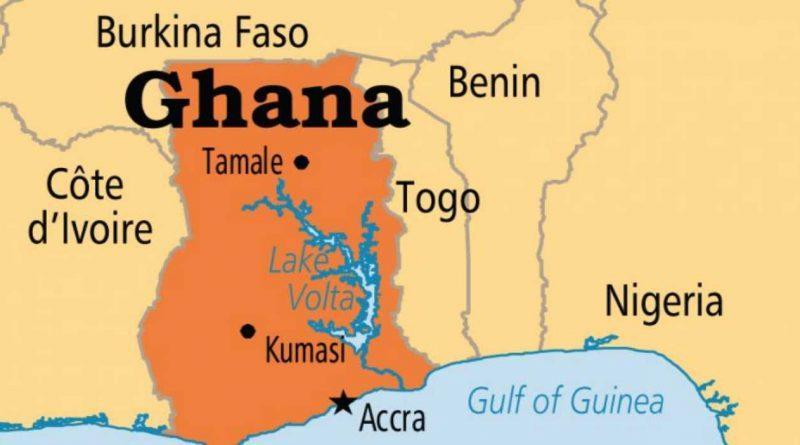Ghana intensifies efforts on malaria eradication with the High Burden High Impact (HBHI) approach
Charity Damoah, aged 36, has experienced numerous hospital admissions due to malaria during her childhood in Sunyani, located in Ghana’s Bono region. However, her two-year-old son John has been fortunate enough to never have contracted the disease.
Unlike many other Ghanaians who have faced the constant threat of malaria, John has been spared from the illness. Damoah expresses her gratitude for the advancements in malaria prevention, such as the distribution of mosquito nets and medicines to pregnant women and children. She reflects on how her family members suffered from malaria in the past, with some even losing their lives to the disease.
Similarly, Gertrude Anno from Assin Fosu in Ghana’s Central region shares Damoah’s sentiments. Her two children have not experienced malaria like she did growing up in an area with a high malaria burden. Anno credits the efforts of health workers for protecting her children from malaria, especially her son Kwesi who received the malaria vaccination.
In 2018, Ghana was identified as one of Africa’s 10 high-burden malaria countries benefiting from the High Burden To High Impact (HBHI) approach. With support from the World Health Organization (WHO) and the RBM Partnership to End Malaria, Ghana implemented targeted activities and interventions under the HBHI approach to effectively control malaria and work towards its elimination. This approach has allowed Ghana to implement tailored measures and maximize the use of existing tools to reduce malaria-related deaths.

The reduction in malaria prevalence among children under five in Ghana, from 20.6% in 2016 to 8.6% in 2023, is a testament to the success of the country’s comprehensive malaria control initiatives. These efforts, which include the use of vaccines, distribution of insecticide-treated nets, and other strategies, have also led to a significant decrease in audited malaria deaths, from 428 in 2018 to 155 in 2022.
The evolving landscape of malaria control in Ghana can be attributed to the effective implementation of various national strategies, such as seasonal malaria chemoprevention, indoor residual spraying, and intermittent preventive treatment. Furthermore, the administration of 2.2 million doses of the world’s first malaria vaccine, RTS,S/AS01, to eligible children in seven regions of Ghana by September 2023 highlights the country’s commitment to combating malaria.
With support from the World Health Organization (WHO), Ghana has made significant progress in strengthening malaria prevention measures, surveillance, and evaluation. Dr. Keziah L. Malm, the Manager of Ghana’s National Malaria Elimination Programme, emphasizes the importance of continuing to collaborate with partners to sustain the momentum towards malaria elimination in the country.
The recent launch of the National Malaria Strategic Elimination Plan 2024–2028 underscores Ghana’s dedication to accelerating efforts to eliminate malaria. Dr. Frank Lule, the Acting WHO Representative in Ghana, acknowledges the effectiveness of the multi-faceted approach to malaria control, which includes indoor residual spraying, mosquito nets, and the malaria vaccine, in driving progress against the disease.
The promotion of health and gender equality, as well as human rights, is ensured through the multi-strategy response. This approach prioritizes vulnerable populations, guaranteeing that all malaria preventive and chemopreventive interventions in Ghana are provided free of charge to children under the age of five and pregnant women. Additionally, the distribution of long-lasting insecticide-treated bednets (LLINs) has benefited children of all ages, offering protection to families against malaria-causing mosquitos.
Dr Felicia Owusu-Antwi, National Professional Officer for Malaria, Vector-Born and Neglected Tropical Diseases, emphasized Ghana’s commitment to leaving no one behind in the fight against malaria. The country actively provides technical support to protect the most vulnerable from the threats of malaria.
Mothers like Damoah and Anno have witnessed the positive impact of Ghana’s efforts against malaria on their families. They have gained improved knowledge of malaria preventive measures, which they believe has been crucial in safeguarding their loved ones. Damoah, for instance, now consistently sleeps under treated mosquito nets with her children and takes measures to prevent mosquito breeding in her environment. She encourages all parents to follow the advice of health workers to protect their families.
The Africa region continues to bear the highest burden of malaria worldwide, accounting for 94% of all malaria cases (233 million) and 95% of all malaria deaths (580,000) in 2022.
Dr Dorothy Achu, Team Lead for Tropical and Vector-Born Diseases at WHO Africa, highlights the recent certification of Cabo Verde as malaria-free and Ghana’s progress towards elimination as reasons for optimism. These achievements reflect the region’s strengthened efforts in malaria control. WHO Africa remains committed to ending the disease in Africa and will continue to support the maintenance and expansion of malaria control interventions across the region.




